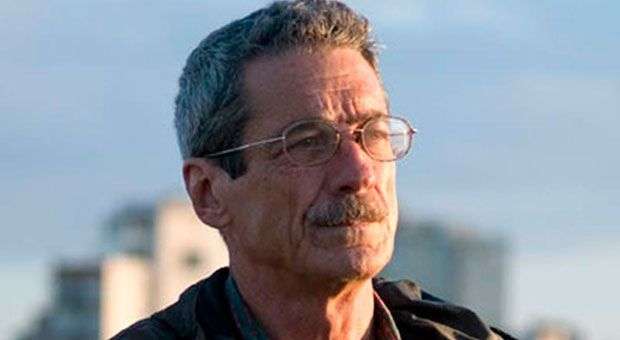Nowadays, the Cuban press is discredited by audiences for being triumphalist and it is said to be detached from the social reality. On the occasion of the discussion on the role of the Cuban media in the usual space Catalejo of the Association of Cuban Journalists (UPEC by its acronym in Spanish), Fernando Perez, one of the greatest figures of Cuban cinema, gave us his vision of the journalism made in Cuba today, though he states: “I don’t like to judge nor make generalizations”.
This filmmaker, producer of movies that have left their mark such as Clandestinos(1988), Madagascar (1994), La vidaessilbar (1998), Suite Habana (2003) or José Martí: el ojo del canario (2009), also relies on his experiences from his time at ICAIC’s Latin American Newsreel.
What’s your opinion on Cuban journalism nowadays?
I have impressions, but they are personal and everydayimpressions. In general, I think that our press should be more dynamic and should provide information in a way that readers are able to judge for themselves rather than receiving conditioned information. I also believe that there needs to be more room for opinion and debates.
Are you of the opinion that our journalism should step a bit aside from the institutional message and search for its own voice as today’s cinema?
It is not possible to mechanically move the experiences in the cinema to journalism, but I do believe that the press should be more open to the new dynamics in which polemic opinions and the absence of centralism enrich our look at our reality and the world’s.
It is necessary to have freedom of movement for publications –and I don’t think the capitalists are free. We need a journalism based on opinions, polemic issues, regardless the chance to be wrong. However, this modality cannot be founded on too many regulations. In such quest, one has to make mistakes; artistic creation and journalism, which I consider to be art as well, demand freedom and this has nothing to do with liberalism but with changing structures that have focused too much on a centralized and unifying way of thinking. The important thing is to have diversity of opinions so that changes may arise.
The Cuban press is got to make mistakes because no one owns absolute truth. In the history of our journalism there have been great journalists. Today, we also have great journalists, but we just have to give them fertile ground so that they can blossom.
Fernando’s suggestions for the Cuban press…
Journalism has its particular characteristics, but I think that any creator should keep in mind an ambivalent approach to reality and offer several perspectives. I always try to express the complexity of society because our society is not black and white, it is not a model, it is not what it should be but what it is; and what it is, is very often in contradiction of what it should be. There isn’t absolutetruth; it depends on how you put it, that’s why I don’t believe in objectivity.
Judging is not good because it means a reduction. Everything has a counterpart, its lights and shades and every fact can be interpreted in different ways. We need to find ways to portray conflicts and contradictions. In Suite Habana, for instance, I tried to tackle a sociopolitical issue that was not approached –and is not usually approached- in the radio, the television and newspapers, an issue that is practically nonexistent in the mass media. That movie aroused controversial interpretations, but that is a good thing. The Cuban media frequently denies truths not dealt with by us when there is obviously a need for spaces for different viewpoints. There can be no change if everyone is of the same opinion.
By: Carolina Rodríguez Castellanos










